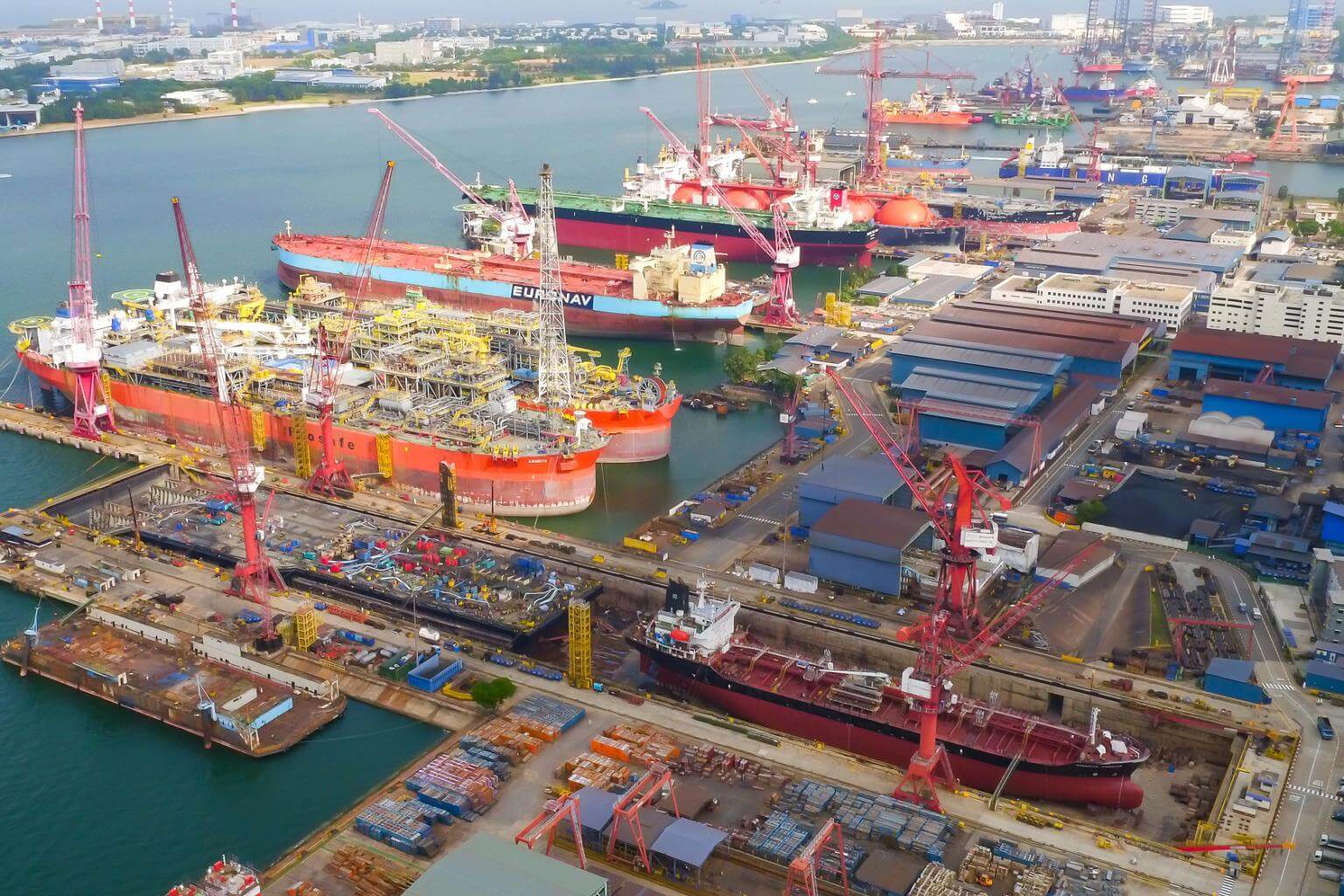Ex-Keppel O&M lawyer discussed with company seniors 'economic terms of contracts' used to bribe Brazilian officials: Court papers
Sign up now: Get ST's newsletters delivered to your inbox

Keppel Offshore & Marine (KOM) is a subsidiary of conglomerate Keppel Corporation, which in turn counts state investment firm Temasek Holdings among its shareholders.
PHOTO: KEPPEL CORPORATION LIMITED
Follow topic:
SINGAPORE - A former Keppel Offshore & Marine (KOM) lawyer said he drafted contracts used to pay bribes to Brazilian officials after "discussing the economic terms" with his seniors at Keppel and "acting in agreement" with them and others at the Singapore company.
Jeffery Shiu Chow, 59, who had been a lawyer with KOM's legal department for over 25 years, was also allowed to return to Singapore to assist with investigations.
These details emerged in an Aug 29 transcript of his remarks at a hearing in New York that were unsealed on Dec 22 last year, the same day KOM agreed to pay a US$422 million (S$563 million) penalty in connection with violations of the Foreign Corrupt Practices Act (FCPA). The settlement and the penalty amount are unprecedented for a Singapore firm.
The violations related to KOM paying US$55 million in bribes from 2001 to 2014 to secure contracts with Brazilian oil giant Petrobras, which earned KOM and related entities US$351.8 million.
The Straits Times obtained a copy of US court transcript, which showed that Chow, a US citizen, had cut a plea deal to help US prosecutors in their probe against KOM and its American unit, Keppel Offshore & Marine USA.
Chow told the US court that he had realised by 2008 that Keppel was "overpaying the agent, sometimes by millions of dollars, so that the agent could pay bribes to individuals who could help Keppel Offshore Marine doing business with Petrobras".
"While I didn't negotiate the contracts or make the decisions to pay the bribes, I knew that the contracts existed to make the payments legitimate and they were an important part of the bribery scheme," Chow said in US court documents.
"Although no one ever named the bribe recipients for me, I knew that they were government officials and the ruling political party."
He told the court that he should have refused to draft the contracts and also resigned from Keppel. KOM is a subsidiary of conglomerate Keppel Corporation, which in turn counts state investment firm Temasek Holdings among its shareholders.
"Instead I discussed the economic terms of the contracts with my seniors at Keppel and acting in agreement with my seniors, and others at Keppel, I drafted the contracts and made sure that they were executed," he added.
"And in at least one case, it was in the US, that I sent the executed copy of the contract from Houston, Texas, to the agent to confirm that my seniors at Keppel had signed the contract.
Court records say Chow on April 12, 2012, sent an email to an executive of a KOM unit RIG Construction "discussing how to structure commission payments that RIG would make to a consulting company controlled by a RIG agent".
When contacted, a Keppel spokesman said that when internal investigations uncovered suspicious transactions in Brazil, the company had announced in October 2016 that it had notified the authorities in the relevant jurisdictions and offered to cooperate fully and extensively in the investigations.
"Keppel also encouraged all its employees to cooperate fully with the authorities," said the spokesman.
Chow is scheduled to be sentenced on May 2 this year. He faces a maximum term of supervised release of three years as well as a potential fine.
Chow has also been allowed to travel to Singapore as part of his bail package.
A US$250,000 bond, which is part of Chow's bail package, was secured by two sureties who are also his brothers, Jimmy and Joseph Chow.
If Chow fails to return to court when required, the bond will be revoked and he can be re-arrested and held without bond until the case is resolved. Additional charges can also be brought against him for bail jumping.
In addition, his brothers will lose the amount of the bond - $250,000 - or their assets of up to that amount can be seized by the US government. And if they don't have assets, the US government can deduct from their wages until the bond amount is satisfied.
Chow is also prohibited from committing crime while on bond, and from witness tampering. If he violates those conditions, additional charges can be brought against him.
Lawyers acting for the US government had proposed that Chow avoid contact with individuals from Keppel, the court transcript shows.
But his lawyer noted: "Mr Chow's life in Singapore has been working for Keppel. If he didn't see those individuals, he would be talking to his dog all day. We've counselled him to not have substantive conversations with people from Keppel.
"I think that his circumstance is such that his contacts are more limited than they were previously."
When asked, the Corrupt Practices Investigation Bureau (CPIB) said it was unable to comment on whether Chow is in or has returned to Singapore to assist with its investigations.
KOM has accepted a conditional warning from the CPIB. This was issued in lieu of prosecution for corruption offences punishable under the Prevention of Corruption Act, and as part of the global resolution.
The company has also taken disciplinary action against 17 current and former employees as part of its Brazil bribery case, including US$8.9 million of financial sanctions, demotions and departures.

